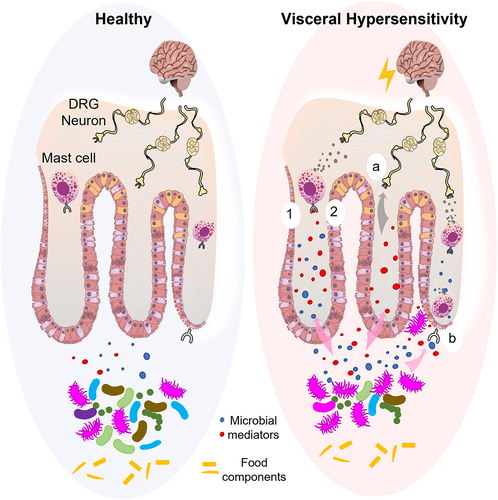Figures & data
Figure 1. Diet–microbiota interactions leading to visceral hypersensitivity: proposed mechanisms and future directions.
In a healthy host, a rich and diverse gut microbiota interact with food components without subsequent signaling to nociceptive nerves. Recent studies suggest that in patients with visceral hypersensitivity (e.g. IBS), interaction between food components and an imbalanced gut microbiota may increase nociceptive nerve activity via: (1) secretion of immunomodulators (e.g. histamine) or (2) increased abundance of LPS, that in turn elicit a host immune response, such as secretion of mast cell mediators (i.e. histamine, tryptase and prostaglandins) leading to activation of nociceptive nerves. Other potential mechanisms that require further investigation include (a) direct activation of nociceptive nerves by microbial mediators and (b) activation of epithelial cells by microbial mediators leading to secretion of factors (e.g. proteases) that ultimately drive nociceptive nerve activation.

